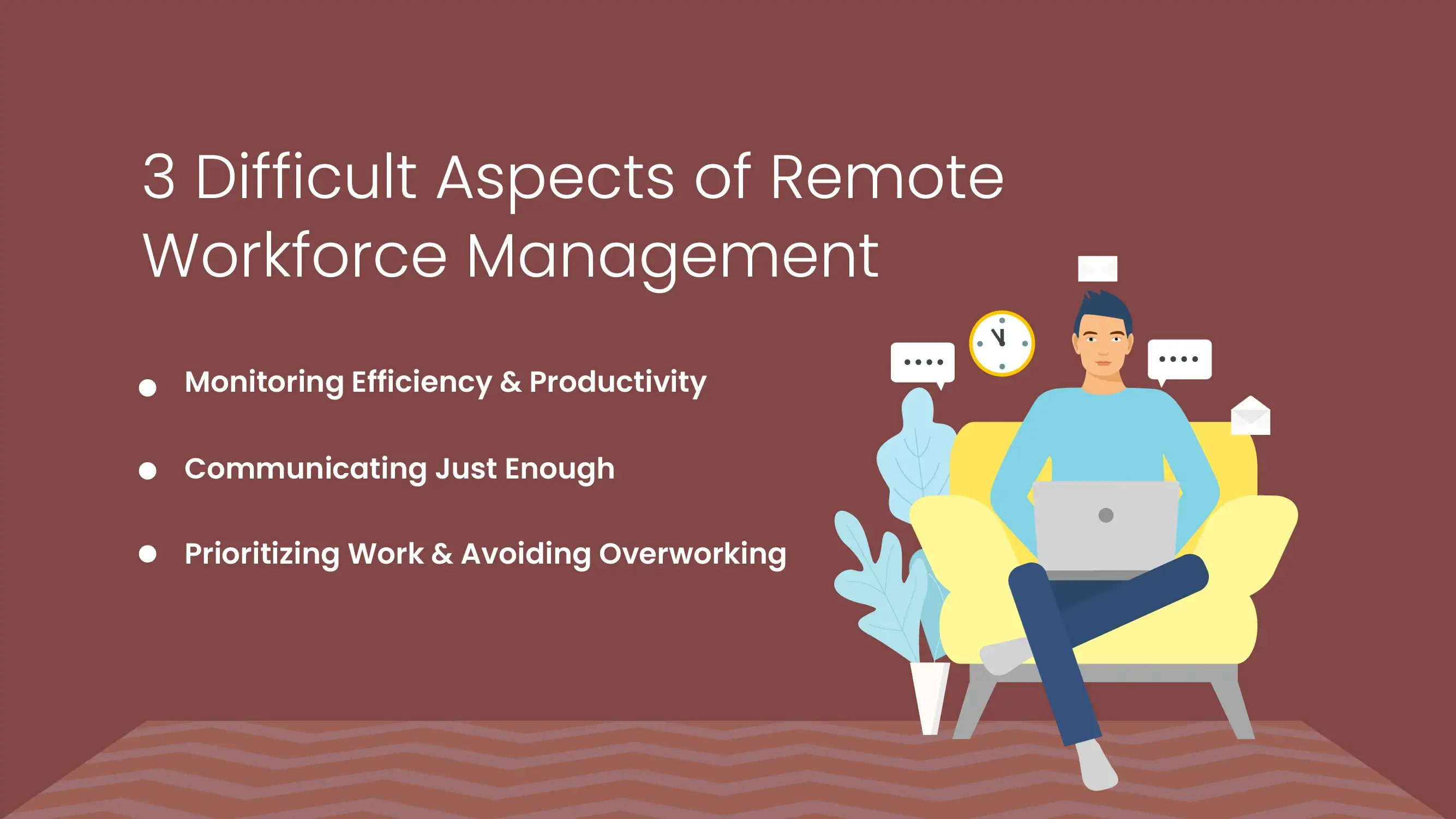
The COVID-19 pandemic has forced businesses worldwide to allow their employees to work from home. While this has been a lifesaver for many people, it has created new challenges for managers.
Remote employees have become increasingly more common in recent times. While this arrangement can have many advantages, it also presents new challenges for managers. This blog will discuss some problematic aspects of managing a remote workforce.
Before that, it is essential to learn about what remote workforce management is all about.
A remote workforce is a team of employees working outside a traditional office setting. There are many benefits to having a remote workforce. However, some challenges come with managing a remote team. Managing a remote team's communication can be a challenging task.
Keeping everyone on the same page can be challenging when you're all in different rooms. It would help if you were concise and tactful when dealing with your staff, ensuring everyone receives the info they need to proceed with their work.
Another challenge of managing a remote workforce is keeping everyone motivated and on track. When you cannot see your team members every day, they can easily get sidetracked or lose motivation.
Having a remotely based workforce has many advantages, but there are also a few downsides. Here risqué of remote workforce management are provided.
Remote working is the latest trend. While this can be an excellent perk for some, it can pose challenges for employees and managers. Here are some tips for monitoring employee productivity and efficiency when working remotely.
Managers must ensure that their employees are productive and efficient while working remotely. Leaders urge their staff members to work toward their goals by establishing clear goals for them. You should also provide regular feedback on performance.
Employees also need to be aware of the potential challenges of working remotely and take steps to stay focused and on task. To meet the goals, you need to set concrete and regular plans. It's also important to take breaks throughout the day and work only during the night.
In a remote environment, it is essential to communicate just enough. Too much communication can be overwhelming and lead to a feeling of being micro-managed. On the other hand, too little contact can leave workers feeling isolated and disconnected.
Often, both parties need to have a clear idea of what is expected from them in terms of communication. This way, everyone can focus on doing their best work without feeling bogged down or left out.
If a brand-new work environment is created, it is essential to mindfully prioritize the work at hand.
First and foremost, open and transparent communication is critical. If you collaborate remotely, it can be hard to know when those around you are available, so it's key that you establish a schedule that others know. This way, you can only schedule meetings or ask for favors within someone's regular work hours.
Second, learn to say no. In a highly isolated environment, it can feel challenging only to be available when you wish - but this is not possible (or healthy!). If you are overwhelmed with requests, take a step back and assess what is necessary.
There are several critical aspects of remote workforce management that organizations need to consider to be successful. These include communication, collaboration, trust, and training.
Organizations can create a productive and positive environment for their remote employees by taking the time to understand and implement these concepts.
Moreover, using a tool like Time Champ can also be beneficial. With the time champ software, businesses can effectively manage their remote workforce and ensure that their employees are productive.